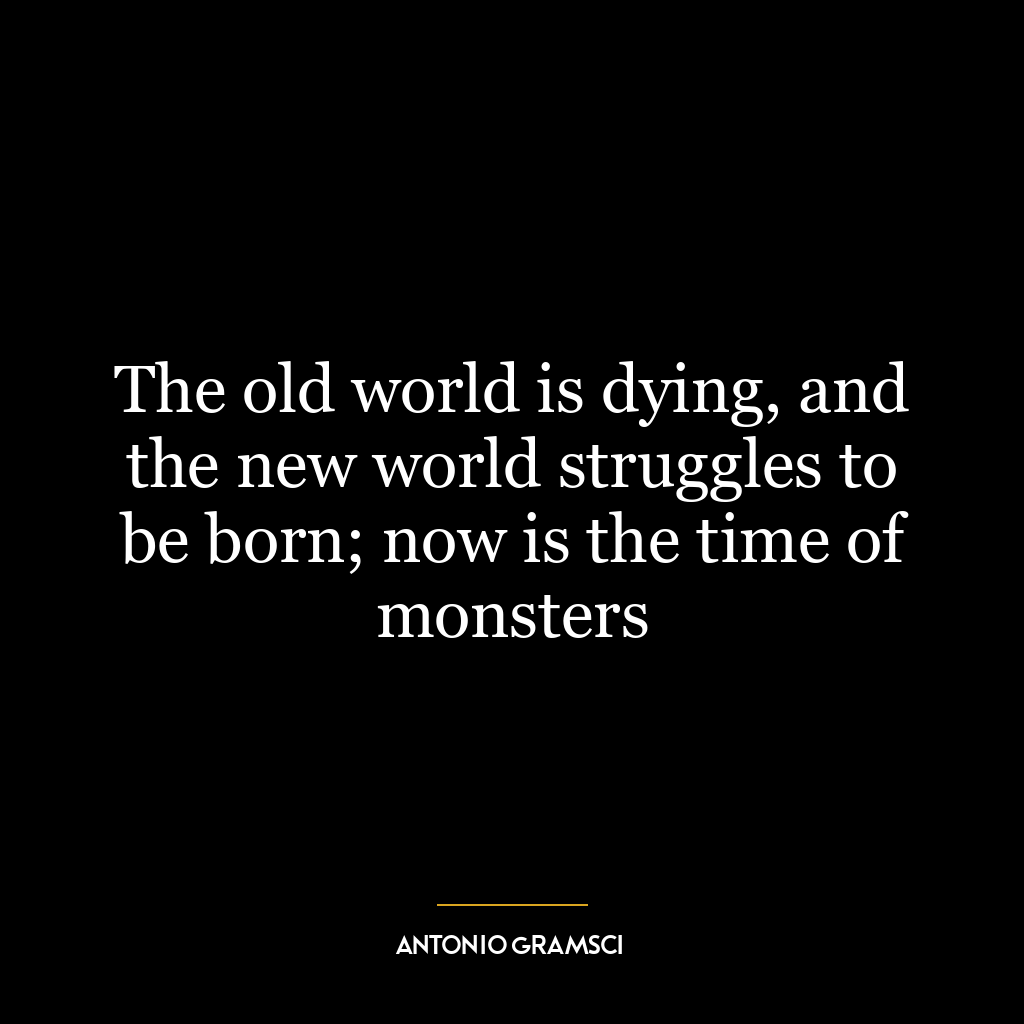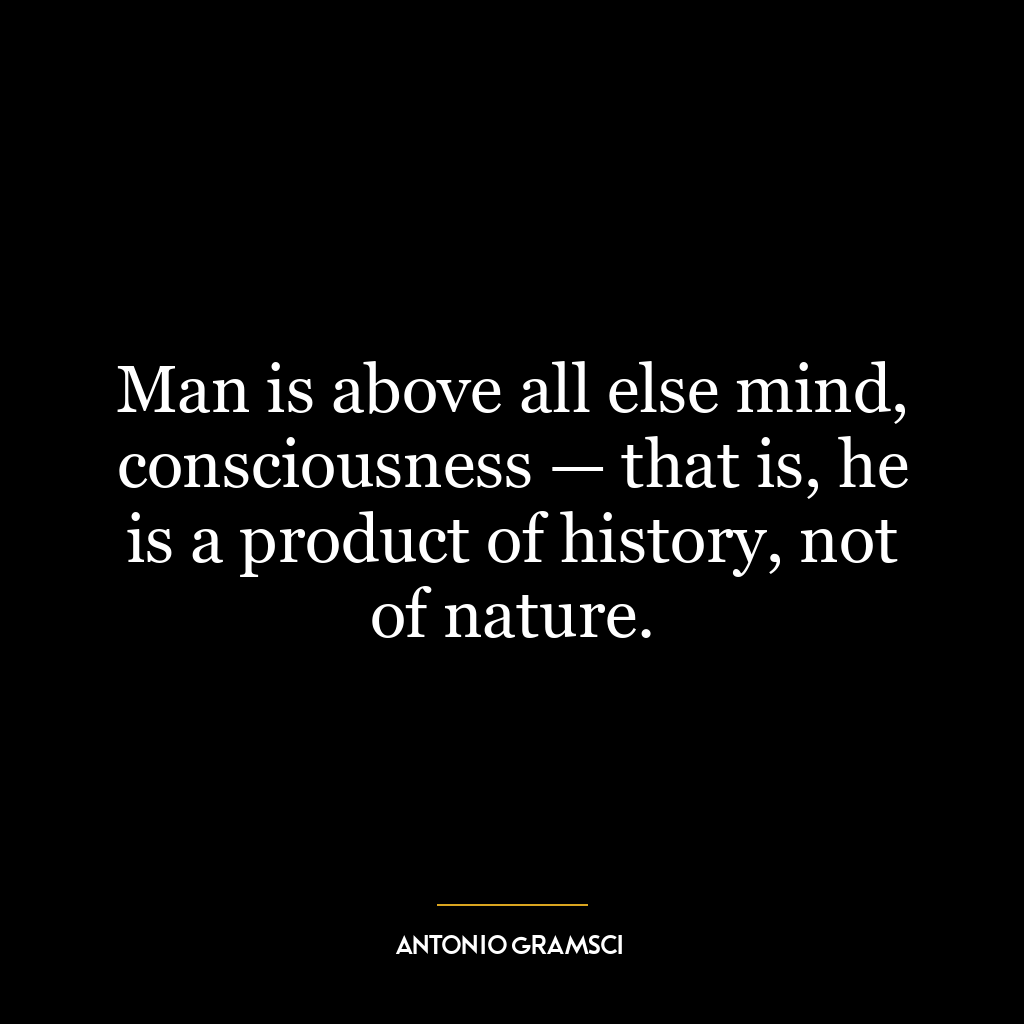Antonio Gramsci Quotes
- Writer
- Italy
- 1891 - 1937
Antonio Gramsci (1891-1937) was an Italian Marxist philosopher and political theorist. He is best known for his theory of cultural hegemony, which explains how the ruling class maintains power by dominating the cultural and ideological discourse of a society. He also developed the concept of “…Read More
Antonio Gramsci (1891-1937) was an Italian Marxist philosopher and political theorist. He is best known for his theory of cultural hegemony, which explains how the ruling class maintains power by dominating the cultural and ideological discourse of a society. He also developed the concept of “organic intellectuals,” which refers to intellectuals who are rooted in the working class and who can help to bring about social change. Gramsci’s most famous works include his Prison Notebooks, which were written while he was imprisoned by the Italian Fascist regime, and his Selections from the Prison Notebooks, which was published posthumously.Read Less
Antonio Gramsci (1891-1937) was an Italian Marxist philosopher and political theorist. He is best known for his theory of cultural hegemony, which explains how the ruling class maintains power by dominating the cultural and ideological discourse of a society. He also developed the concept of “organic intellectuals,” which refers to intellectuals who are rooted in the working class and who can help to bring about social change. Gramsci’s most famous works include his Prison Notebooks, which were written while he was imprisoned by the Italian Fascist regime, and his Selections from the Prison Notebooks, which was published posthumously.
14 Interesting Antonio Gramsci Quotes
Antonio Gramsci Career Highlights
Antonio Gramsci was an Italian Marxist philosopher, journalist, and politician. He is best known for his theories on cultural hegemony and his role as a leader in the Italian Communist Party. Gramsci’s career was marked by his activism and his writings, which continue to influence political thought today.
Key Contributions by Antonio Gramsci
Gramsci’s most significant contribution was his theory of cultural hegemony, which he developed while imprisoned by the fascist government in Italy. He argued that the ruling class maintains its power not just through force, but also through cultural institutions such as education, media, and religion. Gramsci believed that in order to overthrow the ruling class, the working class must first challenge and transform these cultural institutions.
What Sets Antonio Gramsci Apart
What sets Gramsci apart is his unique perspective on Marxism and his emphasis on the role of culture in maintaining social and political power. While other Marxist thinkers focused primarily on economic factors, Gramsci recognized the importance of cultural hegemony in perpetuating inequality and oppression. His ideas have had a lasting impact on critical theory and cultural studies.
Takeaways
Antonio Gramsci’s work continues to be relevant in today’s political and social climate. His theory of cultural hegemony reminds us of the importance of challenging dominant cultural narratives and institutions in order to create a more just and equal society. Gramsci’s legacy serves as a reminder that true change requires not just economic revolution, but also a cultural revolution.
















